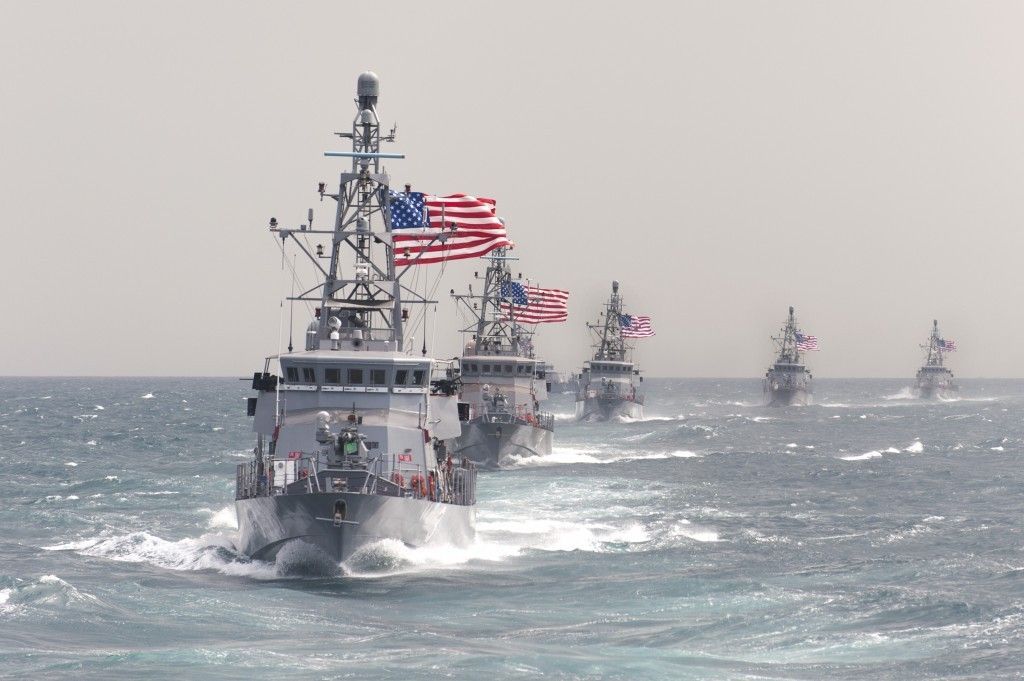DUBAI, May 7 (Reuters) – Iran‘s top security body dismissed as “psychological warfare” a U.S. announcement that a carrier strike group and bombers are being sent to the Middle East as a message to Tehran, the semi-official Tasnim news agency reported on Tuesday.
Tensions rose on the eve of the anniversary of the U.S. withdrawal from world powers’ 2015 nuclear deal with Iran. Tehran is likely to revive part of its halted nuclear programme on Wednesday in response to the U.S. move but does not plan to pull out of the agreement itself, state media said.
U.S. national security adviser John Bolton said on Sunday the United States was deploying the Abraham Lincoln carrier strike group and a bomber task force to the Middle East in a warning over alleged threats by Iranian forces.
“Bolton’s statement is a clumsy use of a burnt-out happening for (the purpose of) psychological warfare,” Tasnim quoted Keyvan Khosravi, spokesman for the Supreme National Security Council, as saying. Khosravi said the carrier had arrived in the Mediterranean weeks ago.
Acting U.S. Defense Secretary Patrick Shanahan said on Monday he had approved dispatching the carrier strike group and bombers due to indications of a “credible threat by Iranian regime forces”. He gave no details of underlying intelligence.
Iranian Foreign Minister Mohammad Javad Zarif said on Twitter: “If U.S. and clients don’t feel safe, it’s because they’re despised by the people of the region – blaming Iran won’t reverse that.”
Iran‘s state-run Press TV earlier said: “The deployment seems to be a ‘regularly scheduled’ one by the U.S. Navy, and Bolton has just tried to talk it up.”
[aesop_image img=”https://kayhanlife.com/wp-content/uploads/2019/01/2018-11-15T080355Z_894459566_RC1A95E89260_RTRMADP_3_ASEAN-SUMMIT.jpg” panorama=”off” align=”center” lightbox=”off” captionsrc=”custom” caption=”U.S. Vice President Mike Pence speaks to U.S. national security adviser John Bolton next to Russia’s President Vladimir Putin at the East Asia Summit in Singapore November 15, 2018. REUTERS/Edgar Su” captionposition=”center” revealfx=”off” overlay_revealfx=”off”]
JITTERS
Separately, a military adviser to Supreme Leader Ayatollah Ali Khamenei asserted that the United States was “neither willing nor capable” of military action against Iran, the semi-official news agency ISNA reported.
Brigadier General Hossein Dehgan said Washington would have a hard time convincing world opinion and regional countries to accept an all-out war against Iran, and to mobilise resources for such a conflict.
Iranian newspapers and commentators have dismissed Washington’s announcement as a “bluff” and “empty rhetoric”.
However, as jitters over the war of words rose, Iran’s rial currency extended its fall on Tuesday, hovering around a seven-month low against the U.S. dollar on the unofficial market, foreign exchange websites reported.
The rial declined to 154,000 to the dollar on Tuesday, compared to 150,500 rials on Monday, touching its lowest value since early October 2018, according to Bonbast.com.
Last week, President Donald Trump’s administration said it would end waivers for countries buying Iranian oil in an attempt to reduce Iran‘s crude exports to zero following Washington’s withdrawal from the nuclear deal.
The administration also blacklisted Iran‘s elite Revolutionary Guard Corps.
Iran said last month it was prepared for a U.S. decision to end the waivers as the Revolutionary Guards repeated a threat to close the strategic Strait of Hormuz in the Persian Gulf if Tehran were barred from using it.
Around 30 percent of the world’s seaborne oil exports is shipped through the strait.
While neither Shanahan nor Bolton elaborated on the gist of U.S. intelligence, other U.S. officials told Reuters there were “multiple, credible threats” against U.S. forces on land, including in Iraq, by Iran and proxy forces and at sea.
(Reporting by Dubai newsroom Editing by Mark Heinrich)


